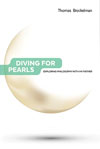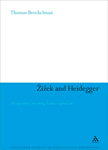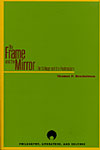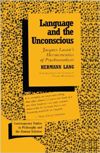Quick links
Part 1, Fundamental Fantasy: Unconscious Theism–You are here.
Part 2, Johnston & Žižek: Religion and the Atheistic Imperative of Psychoanalysis
Part 3, Diagnosing the Present: The Pervert’s Fantasy
Part 4, References
“Religion” is a concept of sufficient breadth that any simple embrace or rejection of what it encompasses is bound to be as much misleading as true. The following comments confirm this in following out polemics about religion within contemporary Lacanian/Freudian psychoanalysis. That is, they show the truth of the hypothesis that any effort simply to negate or, equally, to affirm the religious indicates a point where some more complex truth is being overlooked. But that doesn’t mean that religion is insignificant within the Freudo-Lacanian tradition: quite the contrary, it names a foundational concern of the Lacanian analyst or theorist. What makes the forum of a discussion about religion in the academy of interest to me is the value of exposing, so as to win through to what psychoanalysis can teach us about it, the falsity of the easy addresses to religion in an analytic context.
The following comments pursue this teaching in following a 3-part agenda: I start (Section 1) from a presentation of the theological element in psychoanalysis – from, that is, an explanation of a foundational atheism in Freudian/Lacanian thought. After that (Section 2), I indicate how this psychoanalytic atheism naturally leads two of its important contemporary exponents (Adrian Johnston & Slavoj Žižek; a student and his teacher) to bind psychoanalysis to contemporary polemics about religion. The fact, however, that these polemics directly oppose each other (with Johnston articulating a militant anti-religiosity and Žižek embracing an equally militant radical Christianity) will give us the clue for the final part (Section 3) of this paper. There I will propose that that the atheistic ethos of Freud and Lacan has its value in outlining a nuanced critical theory of contemporary society, a theory that attempts to comprehend the changing historical status of religious belief.
1. Fundamental Fantasy: Unconscious Theism
Let me begin from what I take to be the hidden source of psychoanalysis’ fruitfulness for Lacanian thought about religion – which is contained in Lacan’s idea, as introduced beginning in about 1960, of a “fundamental fantasy.” Since for Lacan this idea is a re-casting of a seminal Freudian motif, let me begin via the case that later became central in Freud’s own accounts of an Urphantasie, namely, the case of the so-called “Wolfman.” Freud wields the term Phantasie in various ways all of which have in common the notion of a psychically constructed and coherent scene in which the subject or (in the case of dreams) dreamer is present as an observer. (Laplanche & Pontalis 1973, 314-316) Beginning in 1915, moreover, Freud speaks of “primal fantasy” (Urphantasie) – using that term in relationship to a “primal scene” (most typically the scene of witnessed parental coitus) that is present to the individual even when it represents no actual experience. (See, Freud 1914/74 & 1917/74). In such a scene, Freud sees a literalization of the reference to origins, a kind of staging or representation of one’s own conception. (Laplanche & Pontalis 1973 332)
So, the Freudian primal fantasy suggests a universe closed on itself – one in which the analysand watches her/himself come into being as that event happens. What is this position that includes “everything” (or, as will be seen, almost everything)? As Slavoj Žižek suggests, it resembles the medieval image of a completed cosmos represented for God.i Fantasy projects the real qua totality – what we call “reality” — by imagining it, at least traditionally, from the position of transcendence, from a privileged subject’s perspective. In order to conceive of the world as “ontologically closed” we imagine a “viewpoint” from which it appears as totality.ii
Now, the elegant thing about the Wolfman case is that its “primal scene” also indicates, in what it excludes from such a picture, the necessity that an irreducibly unconscious element enter into the constitution of reality. The fantasy of the analysand’s own presence at his conception includes consciousness of that presence, but only in the sense that the fantasy is for it: this consciousness remains necessarily also external to the scene, never a fully represented object of its representation. On the contrary, its conscious token is only the anxiety accompanying the Wolfman’s repeated dream of “wolves in a tree,” an uncanny affect that tips us off as to the peculiar half-presence of an “objectile” self.iii The “primal fantasy” proper behind the “primal scene” is what deals with this uncanny exclusion, repressing it and thus guaranteeing that it does not disturb the “reality” produced by that original show.
Here, Freud only hints at what Lacan and his followers have filled in with the idea of the “fundamental fantasy,” namely another and this time necessarily unconscious formation responsible for the stable totality of reality. To suggest that fantasy, we might join Eric Santner and Žižek in returning to a different Freud, the speculative theorist of Moses and Monotheism who proposes that the myth of Moses the patriarch and, indeed, the accompanying production of a patriarchal “God-the-Father” amount to responses to a repressed murder of the actual (Egyptian) Moses.iv After all, Freud’s deduced lesson from the death of the actual Moses, the “father,” is that there are no external consequences, no divine retribution for murder. (Freud 1937/74, 81-85) According to this account, the fundamental fantasy – that we are guilty of some horrible primal crime and thus must endlessly atone for it – actually aims to defeat an unbearable anxiety, to transform it into guilt, the punishment exacted by the superego.
The fundamental fantasy, then, is the necessarily unconscious content of the act by which reality itself, with its quality of apparently seamless totality, is formed. It is unconscious because, by transforming subjectivity into the object of the superego, it hides the incompletion of reality at the point of the subject. That is, guilt transforms the stain of subjectivity into a definite person wracked by guilt, and, in so doing, it hides the gap or hole in being emerging at that site of anxiety. It delivers up the consolation of a world we can inhabit, but only at the price of an endless punishment. “We” are sinners (in the Christian vision, original sinners, guilty of disrupting the basic fabric of Being). Effectively, reality, a complete world, is won by repressing our own uncanny presence, a presence that the fantasy converts into a definite but excluded element. In such a cosmos, we as human beings are primordially guilty of disrupting the fundamental order and therefore excluded from it. An ordered universe, essentially complete in itself, still holds “no place” for the spontaneous human will, the subject. The cosmos is whole: only, short of the redemption posited by orthodoxy, we cannot belong to it.
Of course, this tragic situation also brings its own consolation, in the form of the community of sinners, or, in Freud’s terms, the form of the group of brothers who share the social tie of guilt and humiliation. That is, a stabilized reality is of-a-piece with a social bond based upon shared renunciation. We can see the other person as something other than a potential competitor or enemy, so Freud and Lacan, to the extent that we all share in the fantasmatic casting-out of ourselves from paradise.
All that’s necessary to complete the demonstration of how basic to psychoanalytic thought is Freud’s atheism, is to follow the links by which psychoanalytic treatment aims to loosen the bonds of guilt holding the analysand to his or her misperception of the Real. For Lacan, analysis aims to “traverse the fantasy” potentially liberating the “patient” both from guilt and from the illusion of a transcendence producing and stabilizing reality itself. (Lacan, 1978/62, 273) No wonder, then, that for Žižek and other members of the Slovenian school of Lacanian thought, the process of an analysis aims directly at a kind of revolution, a challenging of the “good forms” of lived ontology. That, by this model, such liberation sails close to madness is, of course, neither incidental nor trivial to my modeling here, but that, too, must remain a theme for another day.
Go to Part 2, Johnston & Žižek: Religion and the Atheistic Imperative of Psychoanalysis.
ii In a passage from The Fragile Absolute, Žižek articulates this point in relationship to sexual fantasy: “one should not” Žižek writes, “confound this ‘primordially repressed’ myth (‘fundamental fantasy’) with the multitude of inconsistent daydreams that always accompany our symbolic commitments, allowing us to endure them.” In order to make this distinction, he then elaborates on two predominant forms of (heterosexual) fantasy today –Peter Hoeg’s idea, from The Woman and the Ape, “of a woman who wants a strong animal partner, a potent ‘beast’, not a hysterical impotent weakling” and the notion of the “cybernetic” lover from male fantasy, the “ perfectly programmed ‘doll’ who fulfils all his wishes, not a living being.” The point of this excursion into gendered sexual fantasy is that, in this context, the level of the fundamental fantasy could be metaphorized through “the unbearable ideal couple of a male ape copulating with a female cyborg, the fantasmatic support of the ‘normal couple of man and woman copulating.” That is, the fundamental fantasy is the fantasy of an Other in both senses of the genitive: it is the fantasmatic projection of an Other whose perspective includes all possible perspectives (in this case, the female and the male of the couple). On the other hand, reality is conceived (by us) as the Other’s viewpoint or fantasy. Žižek 2000, 65-6.
iii Freud traces to this affect a series of repressed representations of the subject – first, the opening and closing of the window separating the dreamer from the tree; then the desire for copulation with the father and the mother (ie., to return to her womb) and finally, in as the membrane or “caul” with which he was apparently born. See, Freud 1917/1974.
iv See, Santner 2000 and Žižek 2003, 128-9.




 Language and the Unconscious: Lacan's Hermeneutics of Psychoanalysis
Language and the Unconscious: Lacan's Hermeneutics of Psychoanalysis

